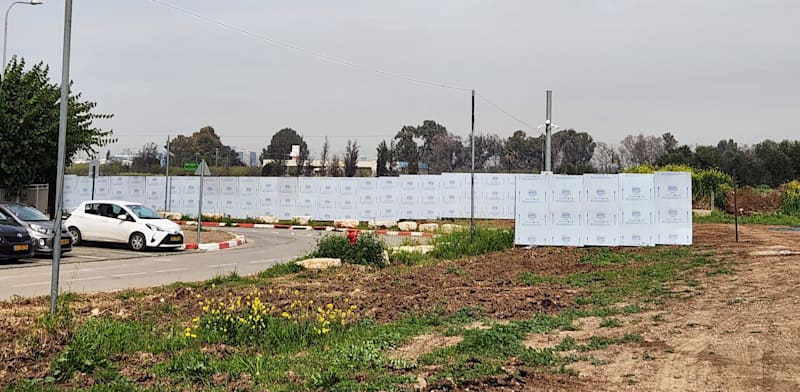NTA sees further delay in Metro launch

NTA Metropolitan Mass Transit System has not managed to publish the tenders for the construction of the tunnels on time, and the Greater Tel Aviv Metro is expected to be delayed by three years, according to an internal NTA document seen by “Globes.”
The Metro network includes 300 kilometers of tunnels beneath 24 local authorities in the Tel Aviv metropolitan region. The planned lines will run from north to south, east to west and in a semi-circle.
Statutory regulations for all the lines have already been approved by the government, as has the TAMA 70 plan, to regulate the real estate market around the stations and exploit the potential for a massive increase in building rights. This will be part of the financing of the Metro network, which will cost an estimated NIS 150-200 billion. Half of the financing will come from the Ministry of Finance, and half through land improvement, taxation, and value enhancement.
A second postponement and probably not the last
Construction of the Metro will be undertaken in two parts. The first part, which was supposed to be completed between 2034 and 2037, includes 78 kilometers, 59 stations and three train depots.
Unlike the work on the Tel Aviv light rail, which is being built line by line, the Metro plan aims to build a small network and gradually expand it, until the full network is in place. So excavation work on all three lines will begin simultaneously.
To this end, NTA presented contractors with schedules about six months ago, based on which the company is supposed to publish the construction tenders in 2026, and by the end of 2027, so that the actual work will be in full swing a year later. However, NTA is not meeting these schedules – the dates for publishing the tenders will be moved – and opening dates will also be put back.
The Metro is already only scheduled to start operating in years, so a delay now, for a project that was supposed to open in nine years, sounds far-fetched. However, the meaning is broader: work on the ground has not yet begun, and there is already a second delay in the project.
When the project first got underway, the government ambitiously estimated that it would begin operations as early as between 2030 and 2034. Subsequently, this was put back to 2034-2037 which will now again be put back. From past experience with projects in Israel, the significant extent of delays occurs before the start of construction but many delays also occur after work has begun.
RELATED ARTICLES
Work to build the Tel Aviv light rail Green and Purple Lines has already been postponed to the end of the decade, after construction was started. So while this this is a second postponement for the Metro, it is unlikely to be the last.
NTA is adopting a new strategy
The latest postponement is also related to supplementary projects that depend on the pace of excavation, such as solutions for removing dirt, building the interchange stations, acoustic protection for apartments, and building factories to produce concrete, as well as employing foreign workers. All of these issues are in addition to the taxation imposed on local authorities and property owners near the Metro stations. That taxation is related to improving properties and urban life – but these have also been postponed.
NTR attributes the postponements to the geopolitical situation and the country’s limited ability to currently attract foreign companies to compete for the huge tenders.
There is logic behind these claims, but for years government ministries have warned that NTA has kept pace in organizing the project, and it was clear that with the appointment of the company’s new CEO Itamar Ben-Meir, the project would again be postponed.
As already reported by “Globes”, the detailed planning of the lines and publishing of tenders was delayed because NTA did not plan enough exits to the Metro stations as required by the National Planning Committee. Companies in the industry are already concerned, since preliminary stages for the tenders have not yet been published, such as the preliminary selection stage that is usually published first and which constitutes a critical barometer of market interest in the projects.
NTA is adopting a new strategy in which the schedules dictated to managers and employees relate to three-year plans and not to the project’s target date, and this is based on the assumption that a date set in years will not lead to an acceleration of work, while shorter-term, more focused plans, might.
Postponement of the tenders also means a deviation from the plan for the coming years as dictated to NTA by the government. Even in a complex and massive project like the Metro, companies in the infrastructure industry need certainty, especially in a period of geopolitical instability.
Published by Globes, Israel business news – en.globes.co.il – on May 26, 2025.
© Copyright of Globes Publisher Itonut (1983) Ltd., 2025.
https://res.cloudinary.com/globes/image/upload/t_800X392/v1724830986/one%20time%20use%20only/WhatsApp_Image_2024-08-26_at_15.19.28_vmscjy.jpg
2025-05-26 13:16:00





